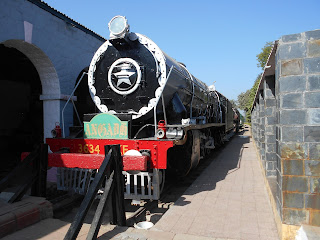NCSM is an autonomous organisation under Indian Ministry of Culture. It is the largest chain ofscience centers or museums under a single administrative umbrella in the world. There are 24 own science centers or museums and one R & D laboratory and Training centre of NCSM, located in different states in India.
Own managed units
- Birla Industrial & Technological Museum, Kolkata, inaugurated on 2 May 1959
- Bardhaman Science Centre, Babur Bagh, inaugurated on 9 January 1994
- Digha Science Centre & National Science Camp, New Digha, inaugurated on 31 August 1997
- Dhenkanal Science Centre, Orissa, inaugurated on 5 June 1995
- District Science Centre, Purulia, inaugurated on 15 December 1982
- Kapilas Science Park, Dhenkanal, inaugurated on 5 June 1995
- North Bengal Science Centre, Matigara, inaugurated on 17 August 1997
- Regional Science Centre, Bhubaneswar, inaugurated on 18 September 1989
- Srikrishna Science Centre, Patna, inaugurated on 14 April 1978
- North Bengal Science Centre, Siliguri, inaugurated on 17 August 1997
- Central Research & Training Laboratory, Kolkata, R & D laboratory and Training centre of NCSM. Operational since 1 January 1988 and dedicated to the nation on 13 March 1993
- Regional Science Centre, Guwahati, inaugurated on 15 March 1994
- National Science Centre, Delhi, inaugurated on 9 January 1992
- Regional Science City, Lucknow, operational since 1989
- Kurukshetra Panorama & Science Centre, Haryana, operational since 2000
- Nehru Science Centre, Mumbai, inaugurated on 11 November 1985
- District Science Centre, Dharampur, India, operational since 1984
- Goa Science Centre, Panjim, operational since 2002
- Raman Science Centre & Planetarium, Nagpur, operational since 1992 & 1996 respectively
- Regional Science Centre, Bhopal, operational since 1995
- Regional Science Centre and Planetarium, Kozhikode, operational since 1997
- Science City, Kolkata, fully operational since 1 July 199
- Visvesvaraya Industrial and Technological Museum, Bangalore, operational since 1965
- District Science Centre, Gulbarga, operational since 1984
- District Science Centre, Tirunelveli, operational since 1987
- Regional Science Centre, Tirupati, operational since 1993
Science centres developed for different state governments- Arunachal Pradesh Science Centre, Itanagar, inaugurated on 3 December 2005
- Chhattisgarh Science Centre, Raipur, inaugurated on 13 July 2012
- Dharwad Regional Science Centre, inaugurated on 27 February 2012
- Kalimpong Science Centre, Darjeeling, inaugurated on 2 October 2008
- Kalpana Chawla Memorial Planetarium, Kurukshetra, inaugurated on 24 July 2007
- Maharaja Ranjit Singh Panorama, Amritsar, inaugurated on 20 July 2006
- Manipur Science Centre, Imphal, inaugurated on 18 May 2005
- Mizoram Science Centre, Aizwal, inaugurated on 26 July 2003
- Nagaland Science Centre, Dimapur, inaugurated on 14 September 2004
- Ranchi Science Centre, Jharkhand, inaugurated on 29 November 2010
- Rajiv Gandhi Science Centre, Port Louis, inaugurated on 30 November 2004
- Regional Science Centre, Coimbatore, Tamil Nadu, inaugurated on 17 July 2013
- Science Centre Port Blair, Andaman, inaugurated on 30 May 2003
- Shillong Science Centre, Meghalaya, inaugurated on 27 February 2006
- Sikkim Science Centre, Marchak, inaugurated on 22 February 2008
- Solapur Science Centre, South Maharashtra, inaugurated on 14 February 2010
Upcoming science centres
NCSM is now developing science centres at the following places in India with collaboration by the respective State Governments.- Dehradun
- Jaipur
- Jammu & Kashmir
- Jodhpur
- Jorhat
- Pilikula
- Pondicherry
- Pune
OTHER PLACES- http://www.nscdelhi.org/
- http://www.pgsciencecity.org/
- "SHOULD NOT REWARI STRIVE
- TO
- HAVE ITS OWN SCIENCE CENTER"
- LET'S WORK FOR THIS CAUSE
































